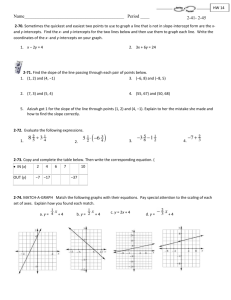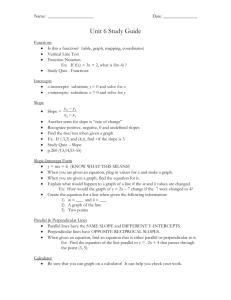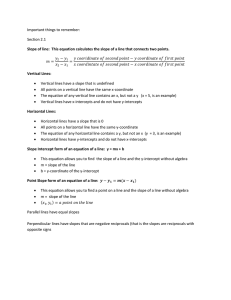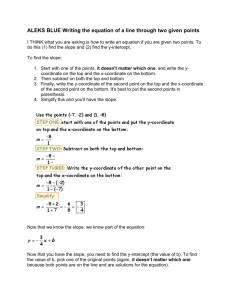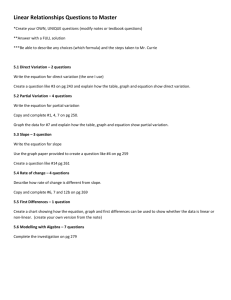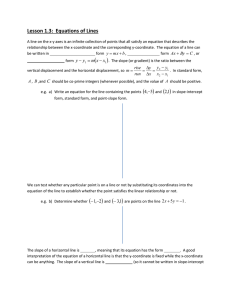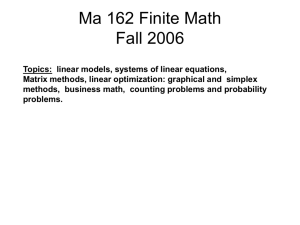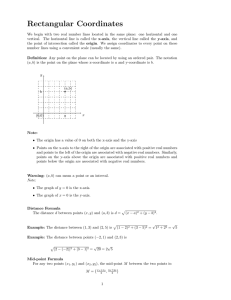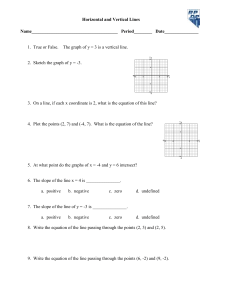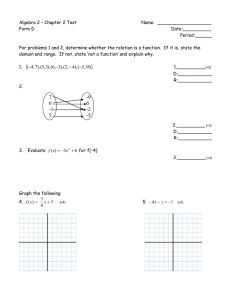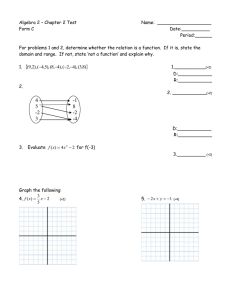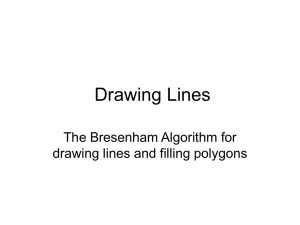Parallel lines
advertisement
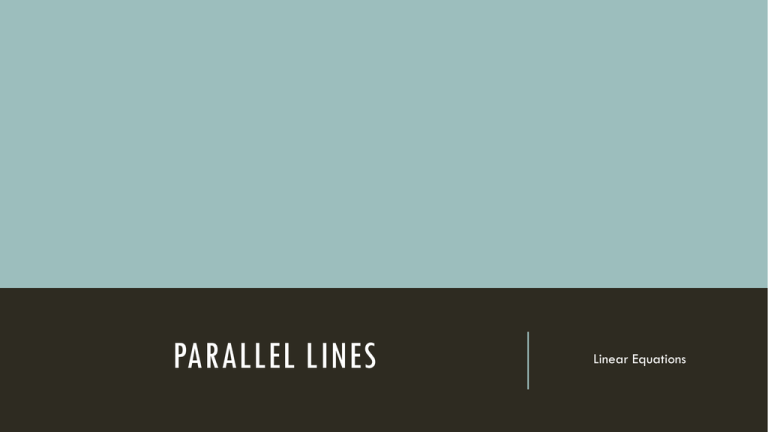
PARALLEL LINES Linear Equations I can find the equation of a line parallel to a given line passing through a given point. Essential Question: Do you use the x- or ycoordinate to find the equation parallel to x=8? How do you know? PARALLEL LINES ARE LINES IN THE SAME PLANE THAT NEVER INTERSECT The symbol for parallel lines is Sketch a graph of two parallel lines. You can determine if two lines are parallel by comparing the slopes and y-intercepts of the lines. WHEN WILL LINES BE PARALLEL? Non-vertical and non-horizontal lines will be parallel when they have the same slope and different y-intercepts. Example: y=2x+1 is parallel to y=2x+7 Vertical lines are parallel when they have different x-intercepts. (Remember all vertical lines have an undefined slope) Example: x=4 is parallel to x=9 Horizontal Lines will be parallel when they have different y-intercepts. (Remember all horizontal lines have a zero slope) Example: y=-1 is parallel to y=15 STEPS TO WRITE EQUATION A LINE PARALLEL TO A NONVERTICAL, NON-HORIZONTAL LINE PASSING THROUGH A GIVEN POINT. EXAMPLE: FIND THE EQUATION OF A LINE PARALLEL TO Y=3X+1 THAT PAS SES THROUGH THE POINT (2, 1) 1. Find the slope of the given line. This will be the slope of your new line. 2. Determine x and y from the given point. 3. 4. Substitute m, x and y into the equation y=mx+b and solve for b. Substitute your m and b into y=mx+b m=3. x=2 and y=1 1=3(2)+b 1=6+b -5=b y=3x-5 STEPS TO WRITE THE EQUATION OF THE LINE PARALLEL TO A VERTICAL LINE EXAMPLE: FIND THE EQUATION OF A LINE PARALLEL TO X=5 THAT PASSES THROUGH (2, 1) 1. Determine the x-coordinate of the point 2. Write the equation of the line as x=_____ The x-coordinate is 2 x=2 is the equation of the line STEPS TO FIND THE EQUATION OF A LINE PARALLEL TO A HORIZONTAL LINE PASSING THROUGH A GIVEN POINT EXAMPLE: FIND THE EQUATION OF THE LINE PARALLEL TO Y=3 THAT PASS ES THROUGH THE POINT (9, 0) 1. Find the y-coordinate of the given point. 2. Write the equation of the line as y=_______ The y-coordinate is 0 The equation of the line is y=0
